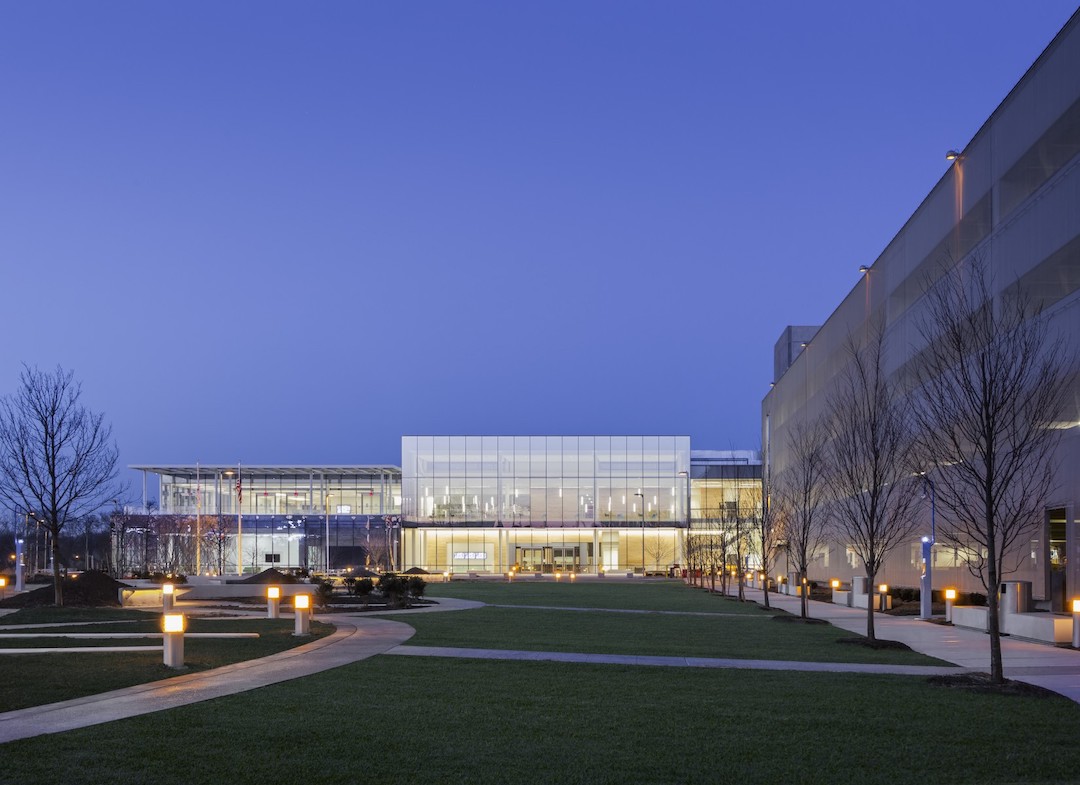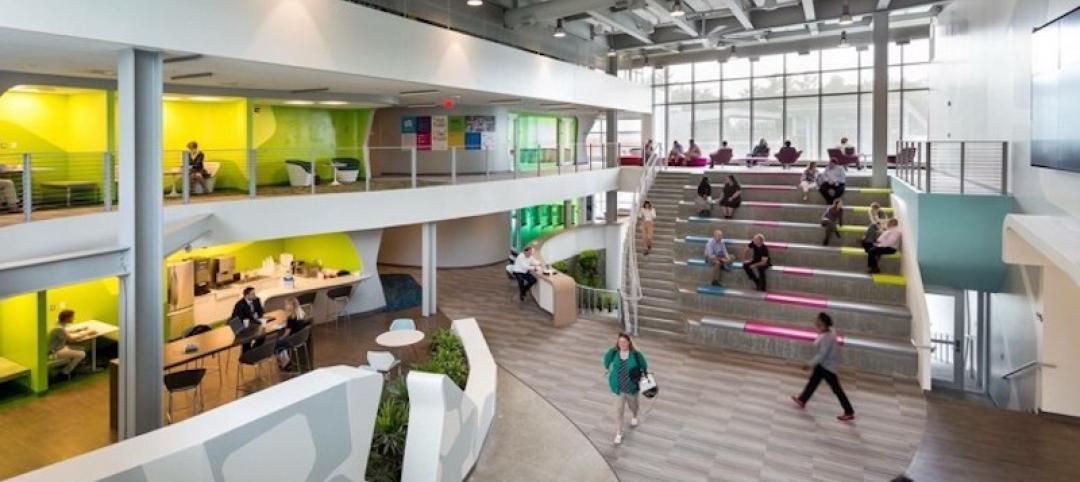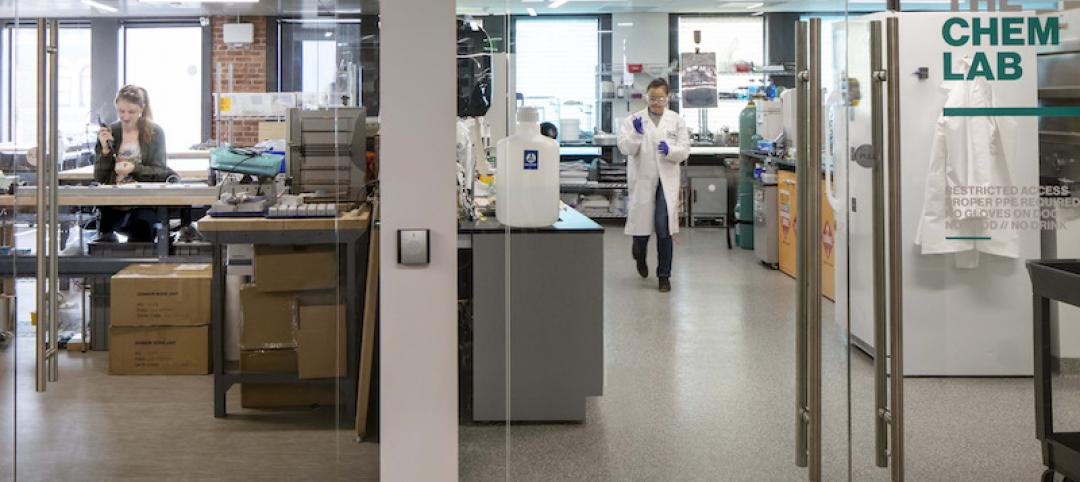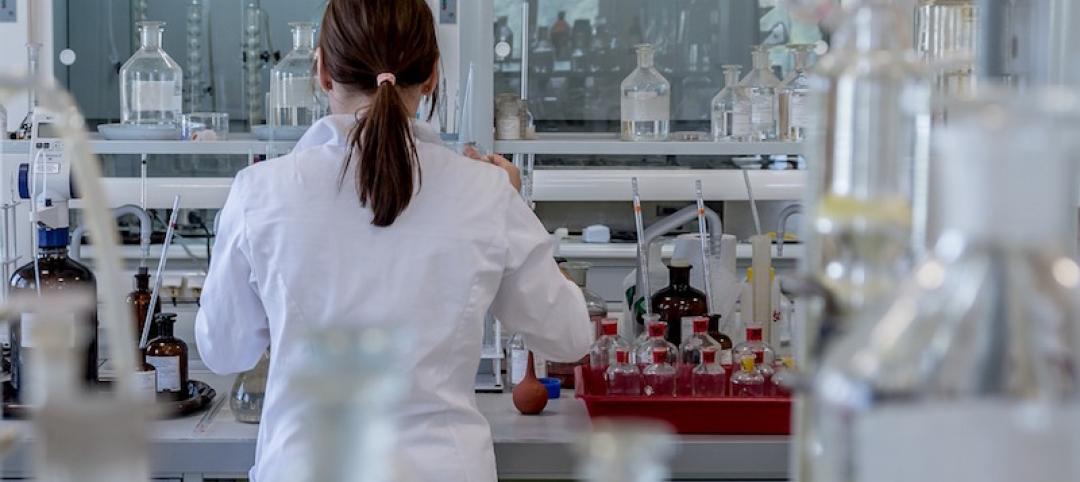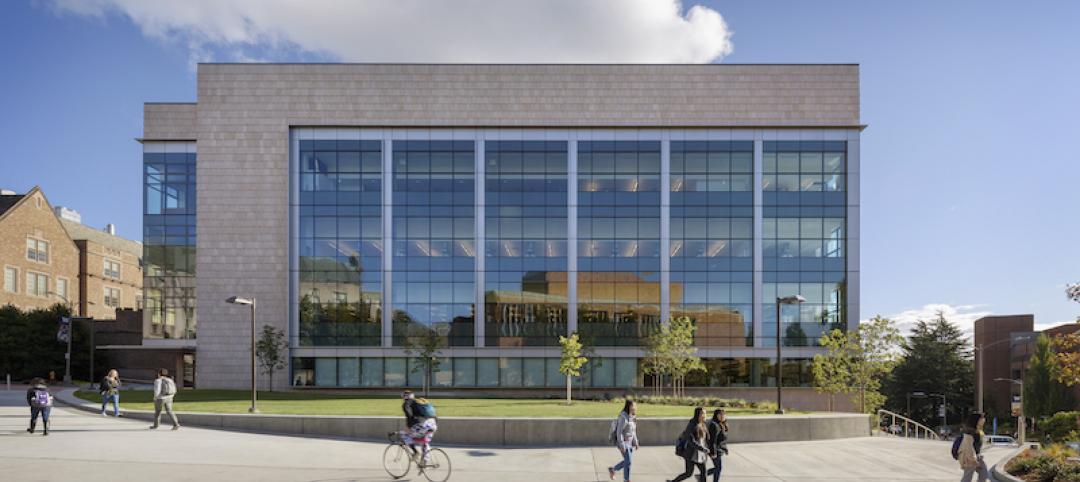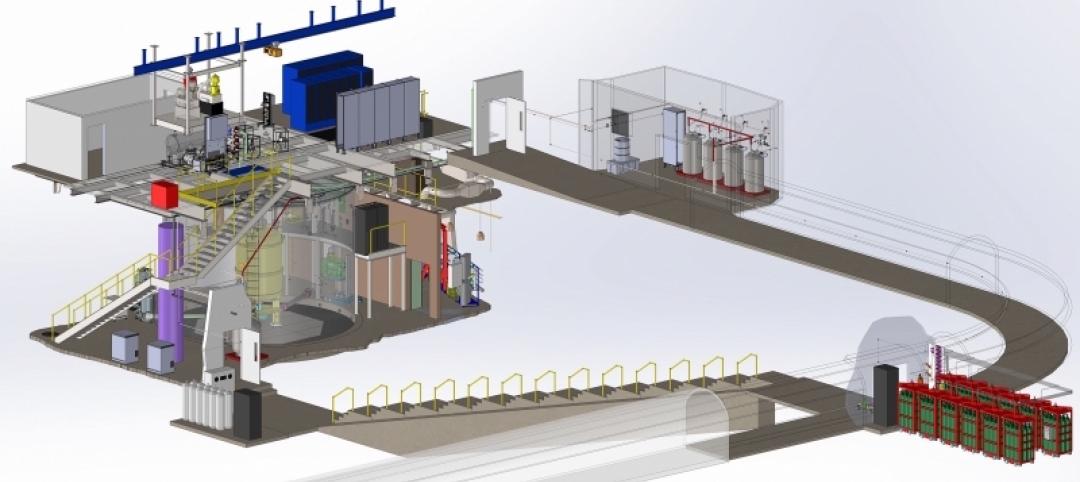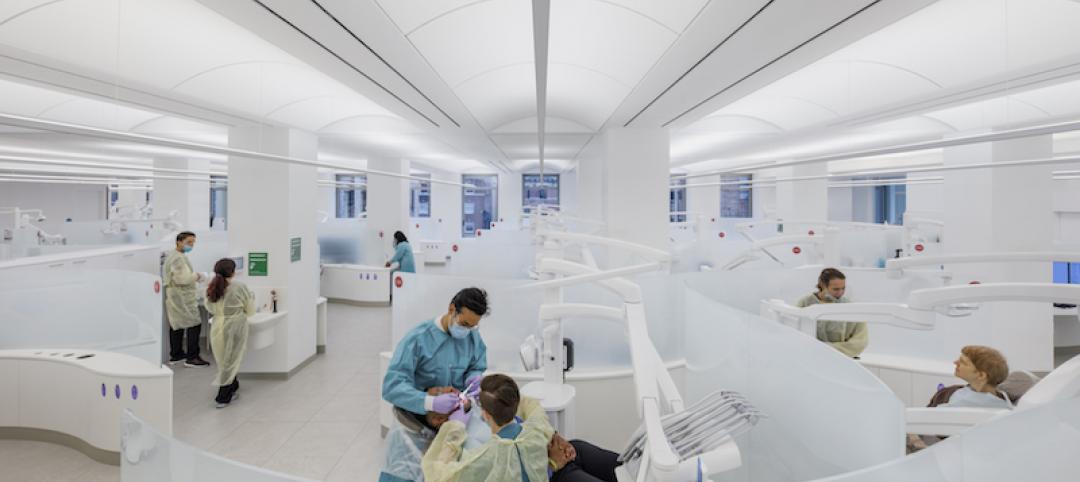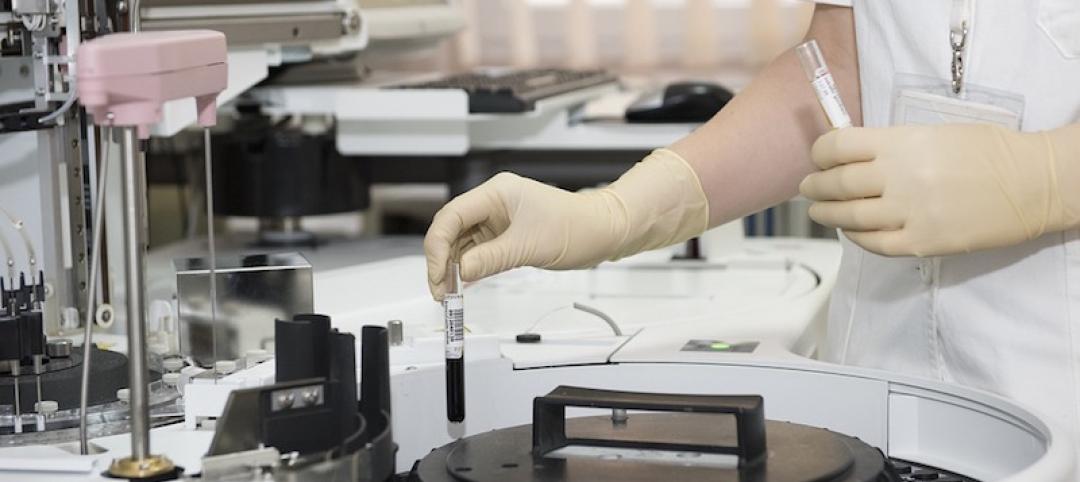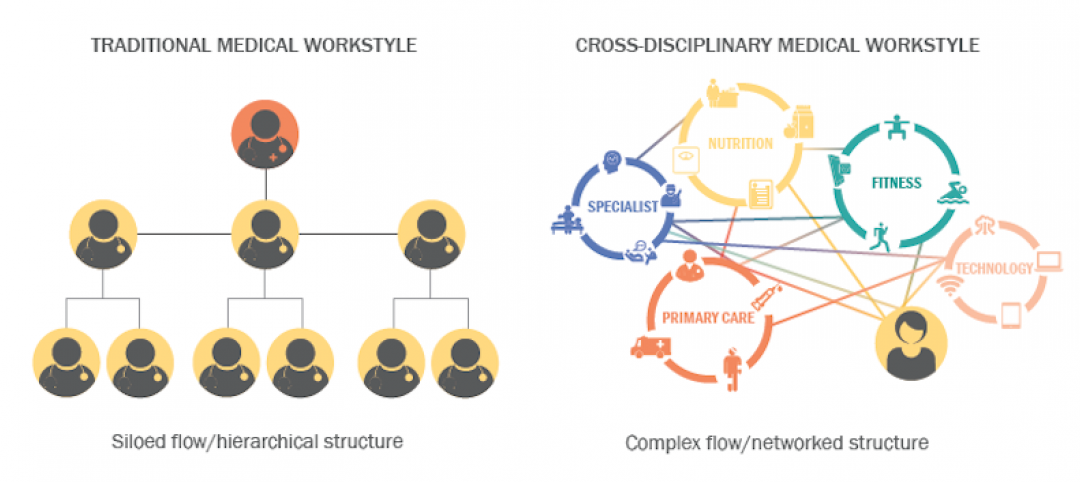Quest Diagnostics has recently unveiled its new 250,000-sf laboratory facility located in Clifton, N.J. The Mark Cavagnero Associates-designed project has become the largest automated specimen testing facility in the world.
The facility incorporates automation technology at an unprecedented scale to provide more comprehensive testing offerings, quicker turnarounds, and increased capacity. The design breaks down the traditional silos between disciplines and introduces new channels for communication, bringing together clinical, laboratory, and administrative offices, which were previously housed in four different locations across the company’s campus.
The project features seamless indoor/outdoor connectivity, light-filled workstations, and large mixed-use social spaces. The central building comprises a large ground-level laboratory and laboratory support spaces. Offices and indoor/outdoor amenity spaces arranged as a linear bar are located on the second floor along the north side of the building.
A skylight-topped “communication staircase” anchors the building, providing space for cross-departmental engagement. The Oculus, a curved glass observation mezzanine, will offer staff and visitors an intimate view of lab operations without interrupting floor productivity. A high-performance glass facade reduces climate control needs and boosts energy savings while maximizing transparency and natural light. The laboratory building is joined by a five-story parking garage in an L shaped scheme that breaks down the overall scale of the site into smaller volumes and creates a welcoming entrance with an open plaza.
The project officially opened on Oct. 12.
Related Stories
Laboratories | Jun 18, 2018
A Massachusetts research building is the first to meet WELL’s Gold standard
Design changes in lighting and HVAC systems were required to meet compliance criteria.
Laboratories | May 21, 2018
Virtual Design and Construction Technology helped design MIT’s new accelerator facility
SGA designed the incubator space.
Laboratories | Feb 26, 2018
Three trends shaping labs of the future
It’s all about flexibility and talent for the future of life sciences.
University Buildings | Feb 16, 2018
The University of Washington receives a new Nanoengineering and Sciences Building
The building marks the second phase of a 168,000-sf complex.
Laboratories | Feb 15, 2018
Mass science: Superlab design best practices
What are superlabs? And what makes for a superbly designed superlab?
Reconstruction & Renovation | Feb 7, 2018
Renovations begin on an underground facility that is investigating the nature of dark matter
This LEO A DALY-designed project makes way to produce the world’s most sensitive detector to this point.
Healthcare Facilities | Jan 6, 2018
A new precision dental center embodies Columbia University’s latest direction for oral medicine education
The facility, which nests at “the core” of the university’s Medical Center, relies heavily on technology and big data.
Giants 400 | Dec 13, 2017
Top 45 science + technology architecture firms
HDR, HOK, and Interior Architects top BD+C’s ranking of the nation’s largest science + technology sector architecture and AE firms, as reported in the 2017 Giants 300 Report.
Healthcare Facilities | Nov 6, 2017
Design isn’t enough to foster collaboration in healthcare and research spaces
A new Perkins Eastman white paper finds limited employee interaction at NYU Winthrop Hospital, a year after it opened.
Laboratories | Sep 22, 2017
Designing for how we learn: Maker spaces and instructional laboratories
Here is how the See + Hear + Do = Remember mantra can be applied to maker spaces and instructional labs.


